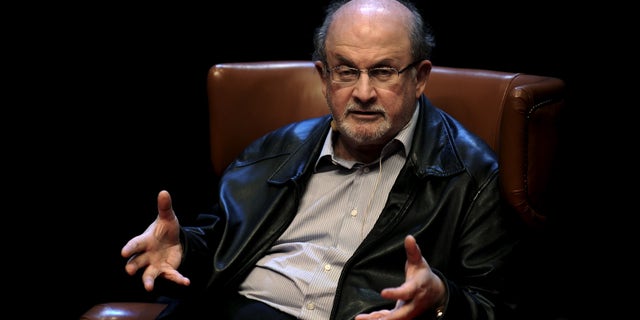No products in the cart.
By now, we’ve all heard of “cancel culture” — a form of social media-fueled activism condemned by President Trump but supported in some ways by activists as a tool for achieving social change.
In recent weeks, everything from Hollywood stars, Confederate statues and canned beans has been in the crosshairs.
But while much of the outrage has been driven by legitimate groups, experts say modern technology makes it easier than ever to destroy companies or ruin careers.
Algorithms developed by big tech companies have become the gasoline on the flames, bringing the complaints of a few to the attention of millions, often with the help of media coverage.
Susan Campbell, a lecturer in the Communication, Film and Media Studies Department at the University of New Haven, says savvy social media users can easily create a firestorm with memes and “pithy hashtags.”
“It mostly starts with social media influencers taking up a cause. If I’m angry at, say, American Airlines, I, a savvy user of social media with shockingly few followers/friends on Twitter/Instagram/TikTok/Facebook will find someone more established who can spread the word, and then I will sit back and hope it takes off,” she said.
Some cancel culture campaigns are driven by up-to-the-minute outrage, while others are dredged up from decades past.
For example, Equinox and the Miami Dolphins were “canceled” for a few weeks last summer after it was revealed that owner Stephen Ross had held a Trump fundraiser at his Hamptons estate.
Another cancel culture campaign called for late-night talk show host Jimmy Fallon to be fired after a video of him in blackface more than 20 years ago suddenly surfaced. Fallon wound up apologizing.
Ultimately, the media chatter waned, and Ross and Fallon retained their fame and fortune.
More recently, Goya Foods, the largest Hispanic-owned food company in the country, faced a backlash including a threatened boycott after CEO Robert Unanue praised Trump during a White House event last week.
Controversy, meanwhile, continues to swirl around national monuments and U.S. military bases honoring Confederate leaders, with many activists calling for statues to be taken down and bases to be renamed.
“The thing is, technology is amoral; anyone can use it,” Dennis Santiago, a global risk and financial analyst, told Fox News. “Cancel culture is merely another form of an advertising campaign that is using these platforms for destructive versus constructive purposes.”
Cancel culture is the process of banding together to publicly shame celebrities, corporations, or movements that are deemed by some to be offensive — not only to demand an apology or seek some form of accountability but squeezing the business or personality financially.
GUN-RELATED ONLINE BUSINESSES BEMOAN GROWING BIG TECHS SUPPRESSION OF THE SECOND AMENDMENT
Outrage spreads so quickly across the internet that brands and people often struggle to respond fast enough to limit the damage. As a campaign takes off, it sometimes draws news coverage, which fuels the fire.
While clearly peaking now, the movement has been simmering since around 2014 when it was referred to as “call-out culture.” Experts say the more aggressive cancel culture had its first big social media boost from YouTube – the Google-owned video platform.
Hashtags have since come to play a pivotal role. In particular, #isoverparty has come to be known as the go-to tag format for cancel culture in the Twitterverse.
It first seeped into the scene via K-pop performers in 2015 before becoming a 2020 U.S. cultural phenomenon.
It has since seized everyone and everything from fast-food chain Wendy’s (#WendysIsOverParty hit the spot this month after it was exposed that a franchise owner – not the CEO as first alleged – donated to the Trump campaign) to entertainer Doja Cat (#DojaCatIsOver garnered outcry last month following reports she had visited racist chatrooms).
“These hashtags influence the news cycle and result in stories that the mainstream media covers. Instead of having a free and open debate of ideas, people who support the canceling will try to get you doxxed, fired, thrown out of school, and ruin your life,” said Adam Weiss, CEO of the New York-based AMW Public Relations. “Cancel culture will continue as long as the media continues to act as a willing partner.”
But at the same time, dueling hashtags also arise – #DojaCatIsNotOverParty – which merely keeps the momentum going by causing further disarray and hostilities. The algorithms push out tweets and Facebook posts that spawn the most engagement – which often ends up as the most savage responses – and advertising dollars for the Silicon Valley powerhouses.
As The Conversation, an independent and academic review publication, points out, “out of millions of tweets, posts, videos, and articles; social media users can be exposed to only a handful.”
DEMOCRATIC PARTY MAY HAVE A DATE WITH ‘CANCEL CULTURE,’ PRINCETON PROFESSORS ARGUE
“So platforms write algorithms that curate news feeds to maximize engagement; social media companies, after all, want you to spend as much time on their platforms as possible,” the report notes. “Outrage is the perfect negative emotion to attract attention and engagement — and algorithms are primed to pounce. One person tweeting her outrage would normally fall largely on deaf ears. But if that one person can attract enough initial engagement, algorithms will extend that individual’s reach by promoting it to like-minded individuals. A snowball effect occurs, creating a feedback loop that amplifies the outrage.”

The “data collection environment” at Georgia Tech, where researchers use a combination of massively scalable graph-processing algorithms and statistical analysis to scan through emails, text messages and IMs for “anomalies.”
(Rick Robinson / Georgia Tech)
Earlier this year, in honor of Black History Month, Barnes and Noble announced a “Diverse Editions” initiative. This entailed changing the ethnicities of characters featured on classic book covers – and was poised to include Native American and Black representations for the “Wizard of Oz,” and darker skin tones on Mary Shelley’s “Frankenstein.”
DEMOCRATIC PARTY MAY HAVE A DATE WITH ‘CANCEL CULTURE,’ PRINCETON PROFESSORS ARGUE
Yet as The Telegraph underscored, the novels in question were themselves chosen based on an algorithm “that identified 12 classic novels which make no reference to the race of their main characters, as if skin color were a superficial element when writing a character.”
The endeavor was soon canceled by America’s largest bookseller, which was forced to respond to those very same algorithms that spawned the cancel culture and accusations of “fake diversity” in the first place.
Algorithms, advertising, and big tech money-making aside, there are other financial interests in the cancel culture arena.
“Every time you read a headline about a brand being canceled, that brand has to spend millions of dollars in consulting fees for a crisis or P.R. firm, legal fees, management consulting fees, contractor or vendor fees, design,” said Kris Ruby, Branding Consultant and CEO of Ruby Media Group, a New York PR agency. “These cancellations cost brands millions to pivot – and every time a small business is canceled, the likelihood of them coming back is even harder because they don’t have access to the same capital source for revival.”
Companies targeted by cancel culture can – if they have the financial means – hire specialty “reputation management” companies squash adverse search results out of the first or second pages on Google, or create their own social media pages and accounts to generate more positive search results.
Competing businesses sometimes fan the flames of the questionable or false narratives. Earlier this year, soon after the Houseparty app surged in popularity as a communications tool amid the coronavirus lockdown – reports emerged encouraging users to cancel the app, claiming it had been “hacked.”
The developers later said the “rumor” had been part of a smear campaign aimed at harming the company’s bottom line.
DOZENS OF ACADEMICS, JOURNALISTS BLAST ‘CANCEL CULTURE’ CRITICS WHO SIGNED HARPER’S OPEN LETTER
Some contend that big-tech’s string-pulling has reached a point of perpetuating cyber-bullying in cases that in years past would merely highlight diverging points of view.
Earlier this month, more than a hundred high-profile academics, authors, activists and artists – from Noam Chomsky and Salman Rushdie to J.K. Rowling and Garry Kasparov – penned an open letter in Harper’s magazine challenging the mob mentality behind cancel culture and its “intolerance.”

Earlier this month, more than a hundred high-profile academics, authors, activists, and artists – from Noam Chomsky and Salman Rushdie (pictured) to J.K. Rowling and Garry Kasparov – penned an open letter for Harper’s magazine as a firm buttress of the mob mentality and its “intolerance.”.
(REUTERS)
But that triggered a backlash to the backlash, with many denouncing the letter and calling for more cancelations.
Santiago, the global risk analyst, said cancel culture has almost become bigger than the platforms themselves.
“In internet space, these techniques can grow rapidly in what is called ‘viral storms,'” he said. “Platforms are presently nearly helpless in managing these storms because they propagate outside the business control systems of these companies. This is why companies like Facebook and Twitter have struggled to create new algorithms to counter nefarious uses of their technology after the fact. They never anticipated this type of misuse of their infrastructure.”
CLICK HERE TO GET THE FOX NEWS APP
Trump has spoken out routinely about the cancel culture movement, including a July 3 speech at Mount Rushmore in which he condemned “a merciless campaign to wipe out our history.”
Despite raising concerns over the protection of free speech, cancel culture has been praised for bringing about fast, necessary change by bringing to light defamatory actions and behaviors by people and businesses.
Where it goes from here remains to be seen.
“The problem with cancel culture is that it is a moving target and constantly changing,” Ruby said. “It is based around individual opinions. Therefore, it is very hard to predict what would be canceled next.”


